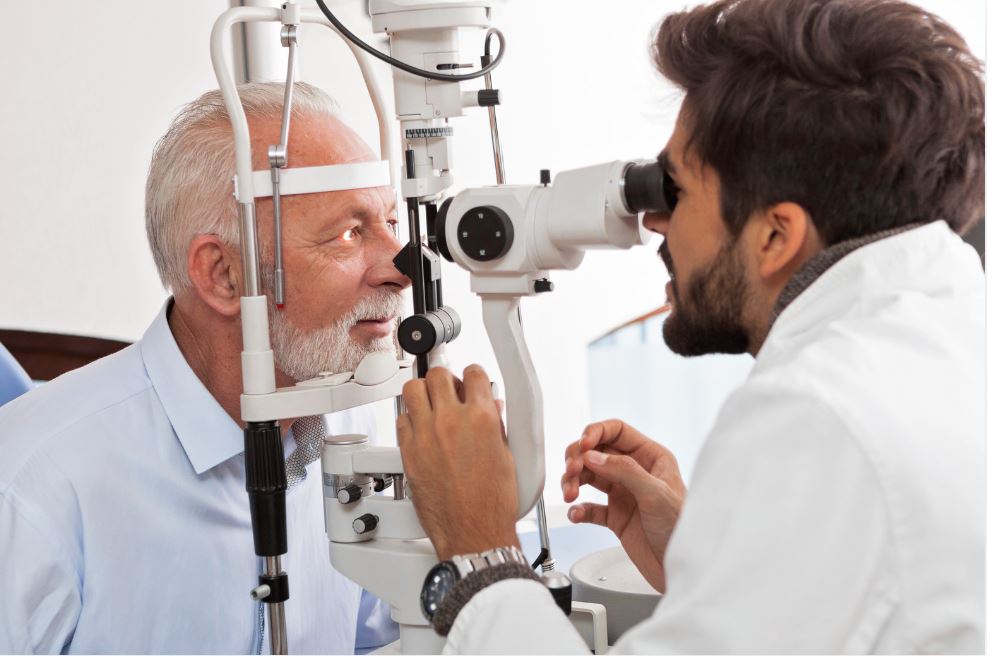Nottingham and Nottinghamshire ICB

A quarter of people in the East Midlands have not had a routine eye test in the last two years and only 7% of under fives in Nottingham and Nottinghamshire have had their eyes tested.
Next week is National Eye Health Week (22 – 29 September) and the NHS and local Charity, My Sight Notts are encouraging people to have a routine eye test to help spot health issues early.
Not only can eye tests detect eye conditions, such as glaucoma, years before you notice a change in your vision, but they can also uncover signs of health problems including diabetes, high blood pressure and cardiovascular disease.
Regular eye tests are available at your local opticians and many people, including children, under 19s in full-time education and those over 60, are eligible for free NHS sight tests. Find out more on the NHS website.
David Cartwright, Chair of Eye Care Trust, said: “Our sight is so important and it’s crucial that everyone is aware of the simple things we can all do to protect our vision and improve eye health. Having a routine eye test can help to spot many health problems and early signs of eye conditions, many of which can be treated if found early enough.
“Fear of cost is the number one reason people give for not have an eye test, yet there are many affordable eye care options, and for those most in need, sight tests and prescription eyewear are free on the NHS.
“It’s also important to think about basic lifestyle behaviours that affect eye health, such as reducing or giving up smoking, keeping ourselves fit and well by eating a healthy-balanced diet, staying active and wearing sun protection.”
“People from certain ethnic groups such as African and Caribbean and South East Asian backgrounds are at greater risk of developing eye diseases. South East Asian people are more likely to develop diabetic eye disease and Black African Caribbean people are four to eight times more likely to develop glaucoma and also have an increased risk of diabetic eye disease”.
Top tips for healthy eyes:
Julie Birch from Nottinghamshire went for a routine eye test five years ago and the optician who was checking the back of her eyes suggested she make an appointment with her GP. Julie was diagnosed with anaemia and referred to the hospital. Scans revealed internal bleeding and after further tests she was diagnosed with bowel cancer.
Julie underwent surgery to the tumour and because her cancer was caught very early, before any symptoms had occurred, there was no need for other invasive treatments like radiotherapy or chemotherapy.
Julie said: “I’d encourage everyone to go for regular eye tests. I’ve been enjoying life and cancer free for over five years now, but if my cancer hadn’t been picked up so early, things may have been very different.”
